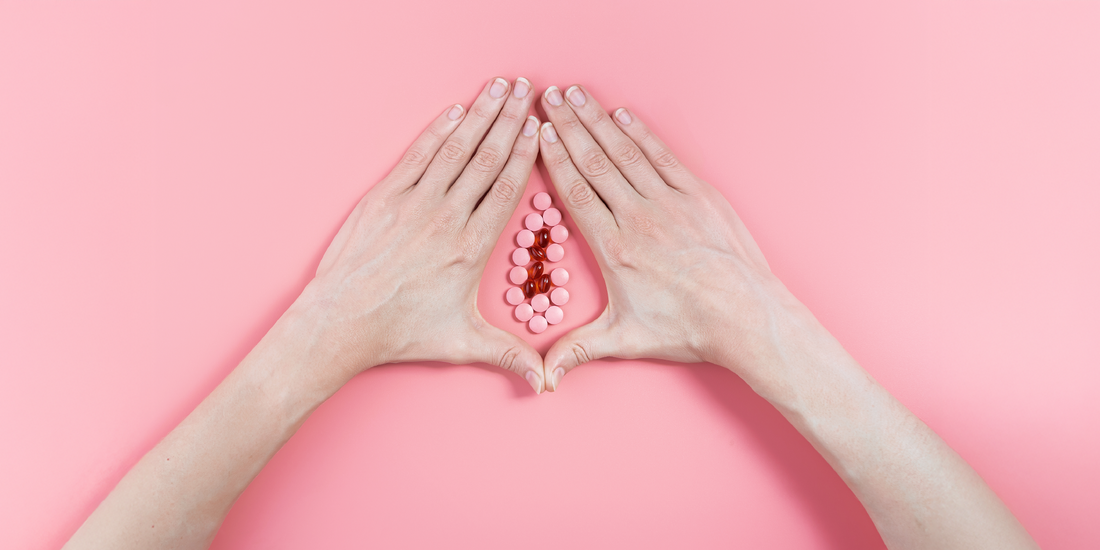When it comes to intimate health, many people mistakenly use “vagina” and “vulva” interchangeably. However, these are two distinct parts of the female anatomy, which need to be understood better for better intimate hygiene, sexual satisfaction and well-being.
Vulva vs. Vagina: What’s the Difference?
 The vagina is the internal canal that connects the uterus to the outside of the body. It is self-cleaning, thanks to its natural pH balance and healthy bacteria that prevent infections.
The vagina is the internal canal that connects the uterus to the outside of the body. It is self-cleaning, thanks to its natural pH balance and healthy bacteria that prevent infections.
The vulva, on the other hand, refers to the external genital area, including the labia (lips), clitoris, and the opening of the vagina.
Unlike the vagina, the vulva is exposed to sweat, bacteria, and irritants from clothing, making it important to clean and maintain daily.
Why do we need to clean the vulva?
Compared to the vaginal canal, the vulva is an external structure. Hence, it is more susceptible to irritation, odour, and infections from sweat, urine, and bacteria buildup. Poor hygiene can lead to accumulation of swet, germs, skin cells and more which makes women prone to UTIs, BV, STIs and irritation. However, over-washing or using harsh products can disrupt its natural balance and cause more harm than good.
The vulva has delicate skin that requires special attention. Factors like tight clothing, excessive sweating, hormonal changes, and sexual activity can all impact it all together. With the proper products and hygiene routine, vulvar hygiene can be easy to manage and done regularly to prevent irritation.
Tips for a healthy & clean vulva

1. Wash with Water and Mild Intimate Wash:
Use lukewarm water and a gentle, intimate wash to cleanse the vulva. You can use this wash to clean the external lips and groin area, while the vagina generally self-cleanses and does not need to be cleaned with soap.
2. Wipe Properly:
Always wipe from front to back after using the toilet to prevent bacteria from spreading. Using unscented, alcohol-free wipes, when necessary, can help keep the area fresh without irritation.
3. Wear Breathable Fabrics:
Cotton underwear and loose-fitting clothing reduce moisture buildup and allow airflow, it is recommended to use that instead of tight, rayon clothing. Synthetic fabrics can trap heat and moisture, creating an environment where bacteria and yeast thrive.
4. Change Out of Sweaty Clothes
Bacteria tend to thrive in warm, damp environments, so change out of work out or wet swimwear as soon as you’re done. Prolonged exposure to moisture can lead to sweat buildup in the intimate area and increase chances of infection.
5. Use Panty Liners:
The vagina is a self-cleansing organ, often creating discharge that stays around the vulva. With soft, cotton panty liners, you can collect the discharge and keep the area fresh throughout the day.
6. Trim or Groom Hair Thoughtfully:
If you choose to remove pubic hair, do so gently to prevent irritation and ingrown hairs using a gentle, research-led hair removal cream. Razors and epilators can cause nicks or increase bumps so keep your vulva acne free with a skin-friendly alternative.
7. Stay Hydrated and Eat a Balanced Diet:
A healthy diet and proper hydration can help maintain your body’s natural balance and reduce irritation. Foods rich in probiotics, such as yoghurt, can support good bacteria levels, while avoiding excessive sugar can help prevent yeast infections.
8. Check for Changes:
Pay attention to any changes in color, texture, or unusual odours. While a mild vaginal smell is normal, a strong, fishy, or unpleasant smell may indicate an infection that requires medical attention. Itching, burning, or unusual discharge should also not be ignored.
Final Thoughts
Caring for your vulva doesn’t have to be complicated. A simple, gentle routine is all you need to keep it clean, fresh, and healthy. Understanding the difference between the vulva and vagina and knowing how to properly maintain hygiene can go a long way in preventing discomfort and ensuring intimate health. When in doubt, always consult a healthcare professional if you notice persistent irritation or changes.













